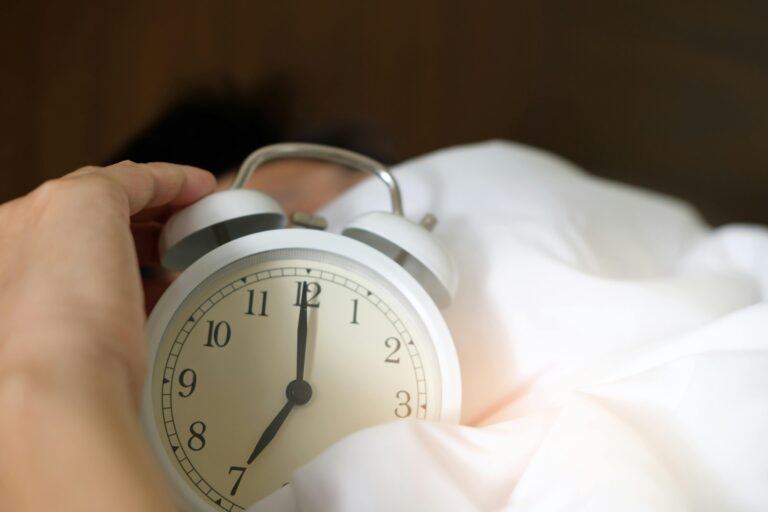Neurology in the Brain - Optimizing the start of your day with simple habits
6 September, 2024 – Sharla Borrowman
Have you ever woken up in the morning feeling exhausted and unprepared for the day to begin? If that sounds familiar, take heart. There are a few straightforward things you can do starting today that can help you up-level your game so that mornings, and the rest of the day that follows, don’t feel quite so difficult.

What is a good sleep routine?
As those of you who are familiar with our program know by now, good sleep is really important in the day to day quality of your life, both in the short term as well as in the long term. One of the best ways to ensure you are able to wake up in the morning feeling ready to take on whatever come your way is to prioritize getting enough Zzz’s the night before. We all have nights when we want to stay up late and enjoy the night life. I have been a self proclaimed night owl for about half of my life, and while that might not be the end of the world, it does make one’s own internal world more challenging.
One helpful tip here in the modern day is instead of using the end of a television show, digital game time, or personal text/email messaging time to cue your bedtime, focus on putting away devices and screen entertainment earlier in the evening so you can better tune in with your body. This lets you avoid stimulating activities before bed and focus on creating a more calming environment. You will wind down better and then be able to use your own natural feelings of tiredness to cue your nightly sleep hygiene routine. At first you may struggle with that self awareness or not even experience tiredness earlier in the evening, but don’t give up! You will become more attuned and able to shift to an earlier more healthy bedtime as you work to consistently improve your daily habits and sleep/wake routines.
You will wind down better and then be able to use your own natural feelings of tiredness to cue your nightly sleep hygiene routine.
Why Does it Matter?
Studies have shown that during the night our body cleans out the unnecessary by products & toxins that have accumulated in our system throughout the day. Our brains have a need for this nightly detox as we sleep. This “house cleaning” also includes organizing and characterizing new information we have acquired through our waking hours. Our mind plays with these new thoughts exploring, making, and strengthening new connections as we dream. Consolidating new information is done partially during the day of course as well, but during sleep our brain is focusing solely on this along with detoxing & healing little micro injuries we sustain during the day.
What Comes Next?
-RESOURCES-
If you want more information about this topic and other content to help the neurology of your brain work as well as possible, you can find it here at Neurology Made Easy: . Also, check out our online portal where we have lots of helpful content about this, and many other topics, to help you become healthier and happier. CORE Healthy Happy Community
